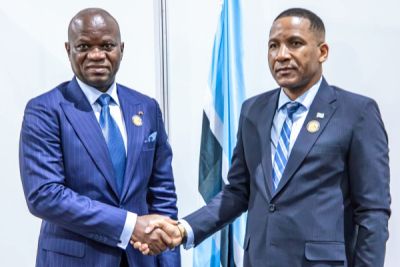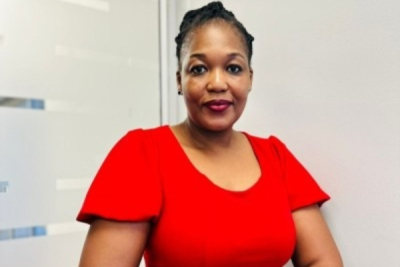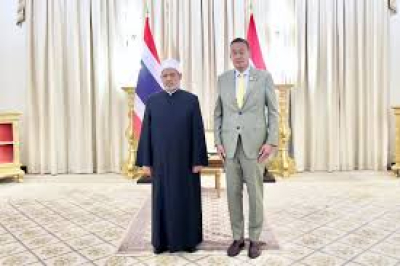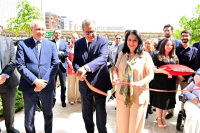Mohamed Khalil Ben Chebil develops digital tools to help employees communicate better with their employers. He focuses on improving work organization and the flow of information inside Tunisian companies.
Ben Chebil, a Tunisian entrepreneur, co-founded and leads Tym, a start-up that builds digital solutions for human resources management.
Tym, launched in 2023, created a platform that aims to modernize HR practices in Tunisia. The platform lets employers collect team feedback and analyze employee expectations and needs. This system helps companies listen more effectively to their staff and adjust internal policies based on real employee concerns.
Tym’s solution integrates employees into decisions about their work environment. It makes it easier for staff to share their thoughts on working conditions and personal challenges.
Ben Chebil graduated with a bachelor’s degree in Information and Communication Technology Management from the Higher Institute of Technological Studies in Communications of Tunis in 2022. He earned a master’s degree in Computer Science at the Higher Institute of Computer Science of Tunisia in 2024.
He started his career in 2020 at the Central Bank of Tunisia, working in banking. In 2021, he interned at 1wayDEV, a company offering customer experience outsourcing services. In 2022, he joined Makers Factory, an incubator for content creators, as a support officer.
This article was initially published in French by Melchior Koba
Edited in English by Ange Jason Quenum
• Mobile services in DR Congo face heavy taxes, driving up costs for users
• Total tax burden includes VAT, excise duties, and sector-specific levies
• GSMA urges tax reforms to improve digital inclusion and mobile access
The Democratic Republic of Congo (DRC) applies one of the heaviest tax burdens on mobile services in Africa, pushing up the cost of voice, data, and mobile money for users. According to the Mobile Sector Taxation: Comparative Fiscal Burden in DRC report published in June 2025 by the GSMA, this tax pressure is limiting digital access, slowing financial inclusion, and hindering the country’s digital transformation.
The report lists several sector-specific taxes. Revenues from mobile services are subject to a 16% value-added tax (VAT) and a 10% excise duty. Additional levies include a 2% contribution to the universal service fund, charged on turnover, and a 3.6% RAM fee intended to support internet access in universities.
While the dedicated mobile money tax was removed, these transactions remain subject to VAT and excise duties, keeping costs high for users.
The cumulative tax burden increases the final price for consumers, especially for low-income groups. Rural communities, youth, and women are among the most affected, even though mobile services play a vital role in providing access to information, education, and financial services. The GSMA warns that the current tax structure limits the spread of digital tools among vulnerable groups.
Data from the International Telecommunication Union (ITU) supports this concern. In 2024, the average cost of mobile services in the DRC was 16.4% of gross national income per capita, far above the ITU’s affordability benchmark of 2%. The GSMA attributes much of this gap to the high tax burden on operators and consumers.
To improve the situation, the GSMA is calling for a review of the tax system applied to mobile services. The association recommends lowering the excise duty to 3%, reducing the number of sector-specific taxes, and simplifying tax collection to promote investment and compliance among operators.
The GSMA also proposes exempting small mobile money transactions to boost usage among low-income households.
In 2018, the organization stated that tax reform in the sector could significantly expand mobile service penetration, particularly among low-income populations. According to the GSMA’s Advancing Digital Transformation in African Economies report, reducing or eliminating certain taxes could lower mobile internet prices by 13% year-on-year by 2028.
• Oligui Nguema pushes Gabon’s digital agenda at US-Africa summit in Luanda.
• Eyes Botswana’s model, plans data center with U.S. firm Cybastion.
Gabonese President Brice Clotaire Oligui Nguema is intensifying diplomatic and economic engagements at the 17th U.S.-Africa Business Summit, which began Monday, June 23, in Luanda, Angola. His objective is to strengthen bilateral partnerships and inject new momentum into Gabon’s digital strategy.
The head of state notably met with his Botswanan counterpart, Duma Boko. Botswana is frequently cited as a model for its advancements in public administration digitalization and public finance management. Impressed by this approach, President Nguema is considering drawing inspiration from Botswana to reform Gabon’s administrative system. He also met with Thierry Wandji, CEO of U.S.-based cybersecurity firm Cybastion. Cybastion has proposed designing a national data center and training 1,000 young Gabonese in digital careers. This initiative directly aligns with Gabon's national ambition to establish itself as a technology hub in Central Africa.
These initiatives unfold amid a broader economic transformation. To reduce its reliance on extractive resources, Gabon is focusing on diversification, placing digital technology at the core of its strategy. The sector currently contributes approximately 5% to the country's Gross Domestic Product (GDP). However, authorities aim to increase that share to 10-12% by the end of 2025 under the "Gabon Digital" program. This program, backed by 44 billion CFA francs (approximately $72.4 million) from the World Bank, includes infrastructure development, improved internet access, and the modernization of public services.
By leveraging both African and international partnerships, Gabon is working to accelerate its digital transition, strengthen its technological sovereignty, and create new employment opportunities for its youth. The real challenge now lies in the effective implementation of these commitments and their tangible impact on the daily lives of citizens.
This article was written in French by Samira Njoya,
Edited in English by Mouka Mezonlin
• Guinea hosts first national EA FC 25 tournament June 27–28.
• Goal: grow e-sports, tap Africa’s $1.8B gaming market.
• Costly, limited internet remains key obstacle.
The first national "FIFA Champions Guinea 2025" tournament will take place on June 27 and 28 at Chapiteau By Issa in Conakry. This event, dedicated to the EA Sports FC 25 video game, will gather 32 players from across the country. Organizers aim to promote access to e-sports and support the growth of digital technology in Guinea through this competition.
Guinea is increasingly interested in gaming, viewing it as a path to employment and a way to showcase digital talent. The organizers hope to structure the video game ecosystem, create a database of top players, train them, support them in building digital careers, and connect Guinean youth to a rapidly expanding global market.
According to a report from African video game publisher Carry1st and market research firm Newzoo, Africa's video game market reached $1.8 billion in 2024. This marks a 12.4% increase over the previous year, while global growth was a more moderate 2.1% during the same period. These figures underscore the sector's potential in Africa, presenting significant opportunities for young people, especially in Guinea.
However, Guinea faces several challenges to fully capitalize on this opportunity. Professional gaming relies on high-speed fixed internet for performance, stability, and its capacity to handle large data volumes, all crucial for a smooth and competitive experience. Yet, fixed internet access remains limited and costly in Guinea.
Data from the International Telecommunication Union indicates that in 2024, the cost of fixed internet represented nearly 7.29% of the monthly gross national income per capita. This figure is well above the internationally recommended 2% affordability threshold, which hinders broadband adoption and limits the use of advanced digital services.
To address these constraints, Guinean authorities quadrupled the capacity of the national fiber-optic backbone in December 2024, increasing it from 50 to 200 gigabytes. However, this technical improvement must be followed by a substantial drop in costs and an expansion of coverage nationwide to allow Guinean youth to fully seize opportunities in gaming and digital technology.
This article was initially written in French by Melchior Koba
Edited in English by Mouka Mezonlin
Portia Keleketu is building digital tools to modernize transport in South Africa. She leads Shesha, a ride-hailing app that connects drivers and passengers through a secure, cashless platform.
Keleketu, a South African entrepreneur, launched Shesha in 2024 to offer a local alternative to global ride-sharing giants. As founder and CEO, she designed the app to fit the needs of South African users. “We created Shesha for our market—something safe, easy, and reliable,” she said.
Shesha uses an integrated e-wallet to eliminate cash payments and reduce risk for drivers and passengers. The platform enforces strict safety protocols, including OTP code verification and facial recognition for all users.
The app allows passengers to input the number of travelers and luggage details before booking. It also features an emergency trip option, available to regular users.
Before Shesha, Keleketu founded NetMzansi in 2018 and ran it until January 2025. The company aimed to digitize and improve the minibus taxi industry.
Keleketu began her career in 2008 as a helpdesk technician at Bytes Technologies. She became a project manager there in 2010. In 2014, she joined Anglo Platinum as an information systems analyst. Between 2016 and 2018, she worked as an events manager at 1000 Amazing Events.
She holds a postgraduate degree in project management from Cranefield College, earned in 2014.
This article was initially published in French by Melchior Koba
Edited in English by Ange Jason Quenum
Egypt and Thailand have strengthened ties in the digital economy with the Egypt–Thailand ICT Networking Event, organized by ITIDA in collaboration with Thailand and the Royal Thai Embassy in Cairo.
The event brought together officials and tech leaders from both countries to explore collaboration in ICT. The forum featured B2B matchmaking sessions, enabling direct connections between Egyptian and Thai tech companies and fostering potential investment, outsourcing, and innovation opportunities.
The event supports Egypt’s digital transformation goals and Thailand’s drive to globalize its software industry.
EdgeNext, an edge computing and cloud infrastructure provider, has announced a partnership with iXAfrica Data Centres, East Africa’s AI-ready, hyperscale data center provider, to bolster the region’s fast-growing digital economy.
The collaboration merges EdgeNext’s global edge platform with iXAfrica’s carrier-neutral infrastructure at the Nairobi One (NBOX1) campus. The result: a powerful ecosystem capable of delivering ultra-low-latency, high-performance, and compliance-ready solutions to enterprise clients in the finance, media, telecom, gaming, and cloud-native sectors.
The partnership is expected to streamline operations for regional and international businesses while enhancing data compliance, security, and real-time performance.
Algeria is stepping up efforts to promote university-based entrepreneurship as a solution to high youth unemployment. By expanding a network of incubators across universities, the country aims to fuel innovation and diversify its economy through start-ups and technology.
Ahmed Mir, President of the National Commission for Innovation and University Incubators, reaffirmed on June 24 in Algiers, the government’s goal of reaching 20,000 start-ups by 2029. The target reflects the ambition of President Abdelmadjid Tebboune to make entrepreneurship a driving force for economic growth.
Speaking during a parliamentary event focused on the role of university incubators, Mir said 124 incubators are currently active within Algeria’s higher education and research institutions. This network has already engaged 60,000 students whose final-year projects focus on launching start-ups, micro-enterprises, or patent applications. So far, these initiatives have resulted in 1,600 micro-enterprises, 130 start-ups, 1,175 certified “innovative” projects, and 2,800 patents filed with the relevant authorities.
This momentum follows three years of intensive work by the Ministry of Higher Education to instill an entrepreneurial culture within universities. Each year, Algeria produces around 250,000 graduates, including more than 110,000 in technical, scientific, and digital fields. These graduates are seen as a strategic resource to strengthen the country’s entrepreneurial ecosystem.
The growing start-up scene carries important social implications. With youth unemployment remaining high, the development of start-ups and micro-enterprises offers a vital pathway to job creation and social stability.
However, despite the promising progress, significant challenges remain. These include improving access to financing, enhancing digital infrastructure, and providing better regulatory support for entrepreneurs.
Samira Njoya
One after another, major tech players like Oracle, Naver, Nokia, and Cisco are setting up operations in Morocco. In just a few years, the kingdom has positioned itself as a key digital hub in Africa, driven by a clear political vision, an appealing level of stability, and rapidly expanding infrastructure.
Last week, U.S. tech company Oracle announced the opening of a research and development (R&D) center in Casablanca, which will create 1,000 highly skilled jobs. This center will focus on cloud solutions, artificial intelligence (AI), and cybersecurity. The American giant is not alone in its investment. Just days earlier, South Korea’s Naver, a leading Asian digital technology firm, also revealed plans to build a next-generation AI data center.
These announcements reflect a broader trend: Morocco is establishing itself as a key platform for multinational corporations looking to expand their presence in Africa. Nokia launched an innovation center in Salé at the end of 2024. Cisco, Jumia, Atos, Huawei, and IBM have all strengthened their operations in the kingdom, drawn by a favorable and mature environment for digital activity.
A Clear Strategy for Attractiveness
Morocco is leveraging its strategic geographic location at the crossroads of Europe, Africa, and the Middle East. However, the quality of its digital infrastructure is primarily what attracts investors. The country hosts more than 20 data centers, one of the densest networks on the continent. It has committed to building two public cloud regions with Oracle, a first in North Africa. This momentum is part of an ambitious policy of digital sovereignty and data localization.
The kingdom’s connectivity is another major asset. According to the Digital 2025 Morocco report by DataReportal, the country had 35.3 million internet users at the beginning of 2025, representing 92.2% of the total population. Morocco is also connected to more than a dozen high speed submarine cables, including 2Africa, which is one of the world’s largest digital infrastructure projects.
A Favorable Investment Environment
Tax policy is one of the tools used to attract businesses. Morocco’s Finance Law includes tax exemptions or reductions for companies located in industrial or technology acceleration zones such as Casanearshore, Technopolis, or Tanger Med.
The country also relies on an increasingly skilled workforce. Around 10,000 IT engineers are trained annually, thanks to partnerships between universities and companies like Huawei and IBM, which offer certification and incubation programs.
Finally, the national strategy "Morocco Digital 2030" sets clear ambitions: to create 150,000 digital related jobs, digitize most public services, and position the country as a regional tech platform. The strengthening of the regulatory framework, including cybersecurity, e-government, and data protection, is helping build a climate of trust for investors.
This dynamic could make the kingdom a key player in Africa’s digital sovereignty and a driver of technological innovation across the continent. According to the latest ranking by financial website Insider Monkey, Morocco is the most technologically advanced country in Africa. With a total score of 208, it ranks first among 15 countries.
By Samira Njoya,
Editing by Sèna D. B. de Sodji
Africa's technological lag creates significant threats to its security, economy, and development. The continent's heavy reliance on foreign innovation also exposes it to the drawbacks of imported technologies. This is largely due to insufficient investment in regulation, research, innovation, and skills training.
Since 2020, Africa has been keeping a close watch on the rapid rise of artificial intelligence innovations. First came AI models generating realistic text, followed by tools that produce striking images. Now, video generation has entered the spotlight. During the Google I/O 2025 event, held May 20-21 in California, Google introduced Veo 3, its latest AI-powered tool capable of creating high-definition videos with natural, lifelike audio. This marks a significant improvement from its predecessor, Veo 2.
“We're entering a new era of creation with combined audio and video generation," said Josh Woodward, Vice President at Google Labs and Gemini, during the unveiling of Veo 3. He emphasized how this tool can generate “ultra-realistic” videos.
With Veo 3, Google joins the fierce competition among AI video creators. Other players include Synthesia, known for producing videos with highly realistic avatars; HeyGen, which offers multilingual dubbing with personalized avatars; Runway, offering advanced creative tools; and Kling AI, specializing in high-quality video generation.
These platforms have already captured the interest of African content creators, filmmakers, and media professionals. But beyond their creative potential, they reveal the alarming sophistication of deepfake technology, hyper-realistic fake videos that continue to improve in quality. Africa is no longer shielded from this threat, as deepfakes are now being deployed for various, often harmful, purposes.
In a world where voices, gestures, and faces can be digitally manipulated with shocking precision, the question is no longer whether African societies will be impacted by this digital revolution, but whether they are prepared to handle it.
Deepfakes: A New Era of Illusion
Deepfakes, a blend of the terms deep learning and fake, refer to videos, images, or audio content altered or entirely created by artificial intelligence to appear authentic. Thanks to breakthroughs in generative AI, anyone can now be made to say or do virtually anything on screen, with staggering realism.
While these technologies present exciting opportunities for film, education, and gaming, they also serve as powerful disinformation tools, especially dangerous in regions with fragile institutions and unequal levels of digital literacy.
Raphael Nkolwoudou Afane, a legal expert and digital law specialist, has raised concerns about the destabilizing effects deepfakes could have on Africa. The continent, with its unique mix of vulnerabilities, is fertile ground for the spread and influence of manipulated content.
“Deepfakes exploit our natural tendency to believe what we see and hear,” Afane explains. “For centuries, visuals equated to proof of authenticity. But today, technology can fabricate incredibly convincing realities. The human brain, untrained to tell the difference between digital trickery and genuine content, is an easy target for these sophisticated illusions.”
He warns that deepfakes could disrupt critical sectors. “Imagine this example in the financial sector. A fake video showing a CEO making controversial statements could tank stock prices or trigger a banking panic. In Africa, where markets are often more sensitive to rumors, the consequences would be devastating.”
Given the fragile trust in public institutions and the dominant role of social media in spreading news, deepfakes pose a direct threat to democratic stability. Targeted misinformation that exploits existing divisions could destabilize entire nations.
Ultimately, deepfakes risk triggering a deep crisis of confidence in political leaders, public figures, and institutions across Africa.
African Societies at Greater Risk
In Africa, platforms like Facebook, TikTok, Messenger, and Instagram have become major sources of news and information. These channels help content spread rapidly, often far beyond its place of origin, amplifying both verified news and unverified claims.
During Donald Trump's presidency, content moderation on platforms like X (formerly Twitter) and Facebook weakened, as free speech was prioritized over strict verification policies. This contributed to the loosening of controls on misleading content.
With many African countries lacking clear regulations for social media, while still aiming to protect free speech, the risk of deepfakes multiplying is high. Some nations have started taking steps. In 2022, Uganda updated its Computer Misuse Act, originally passed in 2011. The revised law penalizes the distribution of false information, including deepfakes, and also bans unauthorized access to data and sharing sensitive information about children.
According to the Digital Report 2025, the global number of social media users reached 5.31 billion in February. Africa accounts for 561 million of those users, based on Statista data.
Here is the breakdown of Africa's most-used platforms in 2025:
- Facebook: 294.1 million users
- Messenger: 104.5 million users
- TikTok: 189.3 million users
- Instagram: 91.1 million users
- X (formerly Twitter): 27.8 million users
It is important to note that users may be active on multiple platforms.
Limited Tools and Incomplete Laws
In July 2024, the African Union (AU) adopted its first Continental Artificial Intelligence Strategy, covering 2025 to 2030. The initiative aims to harness AI to drive Africa's development and prosperity.
Dr. Amani Abou-Zeid, AU Commissioner for Infrastructure and Energy, explains that the strategy “aligns with the AU's goals for inclusive development and reflects core values such as ethics, inclusion, diversity, human rights, dignity, well-being, peace, and prosperity.” A key priority is ensuring AI systems are designed and adapted for Africa's unique context.
The strategy promotes an inclusive, Africa-focused, development-oriented approach built on five pillars. Fully leveraging AI's benefits -Building AI expertise and capabilities -Minimizing risks associated with AI -Boosting investment in AI -Strengthening regional and international cooperation.
It offers a shared vision and outlines critical actions to help Africa unlock AI's potential while addressing the social, ethical, security, and legal challenges it presents.
However, despite this continental roadmap intended to guide and inspire African countries to address AI's growing challenges, progress remains uneven. Each nation moves at its own pace, balancing AI advancement with local development priorities.
The continent's readiness to manage AI risks, particularly misuse like deepfakes, remains inadequate.
Between 2018 and 2023, only six countries, Algeria, Benin, Egypt, Mauritius, Rwanda, and Senegal, developed national AI strategies. Others, including South Africa, Ethiopia, Ghana, Kenya, Mauritania, Morocco, Nigeria, Uganda, Tanzania, and Tunisia, have made notable strides in shaping policies and creating AI-focused institutions.
Still, the International Monetary Fund's AI Preparedness Index (AIPI) shows that nearly 80% of African nations lack sufficient regulatory frameworks, human skills, and innovation capacity to manage AI effectively.
Investments Must Match the Risks
On the technology front, local initiatives to develop deepfake detection tools or enhance institutional cybersecurity remain rare. Public awareness campaigns around manipulated content are also limited.
The African Union, recognizing these gaps, offers several recommendations in its AI strategy. Beyond adopting ethical guidelines for AI and related technologies, the AU emphasizes the urgent need to boost research and development, foster innovation, and build human expertise.
Such measures could help Africa develop deepfake detection tools and leverage AI to grow critical sectors across its economies.
The economic stakes are high. McKinsey estimates that generative AI could boost global productivity by 40% and add between $2.2 trillion and $4.4 trillion annually to the world economy. Even capturing just 5% of that potential could add $110 billion to $220 billion each year to Africa's GDP.
Smart use of AI could also accelerate industrialization, job creation, and improvements in public services, healthcare, education, and climate crisis management. In disaster-prone areas, AI can help better predict and respond to droughts, cyclones, and wildfires, saving lives and cutting costs.
Africa's AI ecosystem already shows promise. The AU counts over 2,400 organizations working on AI innovation, with 41% of them being startups in fields like healthcare, agriculture, education, law, and insurance. The security sector could also greatly benefit from AI advancements.
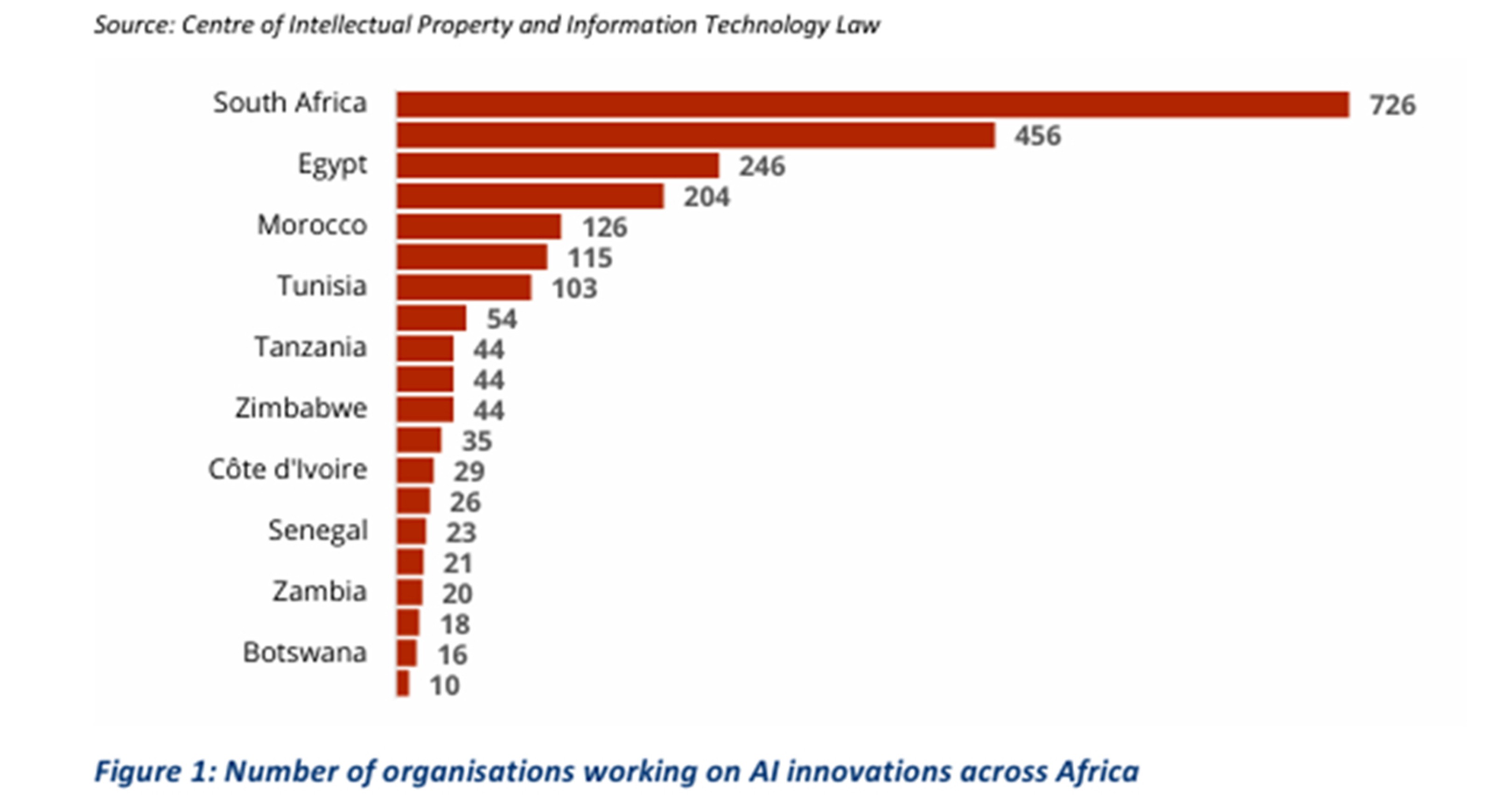
Faced with the rise of deepfakes, Africa cannot afford to remain passive. The fight for digital truth is deeply tied to issues of sovereignty, democratic stability, and public trust. It is not about rejecting AI progress, but ensuring its responsible use, and putting safeguards in place to prevent its abuse.
Muriel Edjo
More...
Peter N. Kironji builds bridges between small businesses and social media influencers to boost online sales. He focuses on turning ideas into real opportunities through digital commerce.
Kironji, a Kenyan tech entrepreneur and engineer, co-founded and leads Twiva, a social commerce platform that uses influencer marketing. Twiva links small and medium-sized enterprises (SMEs) and micro-businesses with micro-influencers and content creators who promote and resell products on social networks.
Launched in 2020, Twiva lets anyone become a reseller or influencer. Users create an account, pick products, and share them on Facebook, Instagram, WhatsApp, and other platforms. Influencers earn commissions between 5% and 10% per sale, generating income while expanding businesses’ reach.
For businesses, Twiva offers a centralized interface. It manages online stores, tracks influencer campaigns, and automates sales and payments. The platform consolidates product management, marketing, transactions, and reporting to make digital commerce easier for local companies.
Kironji earned a bachelor’s degree in electrical engineering and computer science from the University of Toronto in 2017. He completed a master’s in data science, technology, and innovation at the University of Edinburgh in 2021.
Before Twiva, Kironji worked as an IT assistant at the University of Toronto starting in 2016. In 2018, he joined IAMConcepts, a Canadian cybersecurity firm, as an information systems security specialist. Between 2020 and 2021, he worked as a cybersecurity engineer at KeyData Associates.
Melchior Koba
Yannick De Gonzague aims to make financial services accessible to every business in Africa. His mission is clear: help companies manage payments simply, securely, and efficiently, no matter their size or sector.
De Gonzague, a key player in Côte d’Ivoire’s tech and finance ecosystem, founded Vision Digital Finance in 2024. The platform acts as a payment aggregator, enabling companies to send, receive, and control financial flows across more than 12 African countries.
Vision Digital Finance offers a wide range of services tailored to business needs. The platform supports multi-channel collection through mobile money, bank cards, transfers, and QR codes. It also provides international transfers, personalized virtual IBANs, real-time dashboards, and automation APIs to simplify accounting and transaction workflows.
The system handles over ten payment methods and supports more than six currencies, ensuring wide regional compatibility.
De Gonzague earned an engineering degree in network and systems administration in 2008 from ESTEM in Morocco. He started his career a year earlier, in 2007, at CodCom, a Moroccan IT firm, where he worked as customer service manager.
In 2009, he joined Access Bank Côte d’Ivoire as account manager for large enterprises. Three years later, he moved to UBA Bank as profit center manager.
By 2016, he transitioned into the tech-finance space, taking the role of marketing and partnership manager at NSIA Technologies, the tech arm of the NSIA banking group.
He then worked for leading fintech firms like Flutterwave, Wave Mobile Money, and Clapay, where he held senior roles including operations and partnerships manager, commercial development director, and operations director in Côte d’Ivoire.
Melchior Koba
Without a reliable addressing system, authorities struggle to plan infrastructure, deliver utilities, or respond promptly in emergencies.
The Lagos State Government has launched the Lagos Identity Project, a digital house-numbering and identification system aimed at transforming property mapping, urban planning, service delivery, and emergency response across the state.
According to local media, the project was unveiled on Tuesday, June 24, in Alausa by Dr. Olajide Babajide, Special Adviser to Governor Babajide Sanwo-Olu on Enterprise Geographic Information System (e-GIS). It marks a major step in Lagos’ smart city journey. It introduces QR-coded digital address plates with local government-specific color codes, enabling instant access to verified property data via mobile devices.
“This project is about providing Lagosians with the world-class services they truly deserve,” Babajide said. “From tax evasion to untraceable addresses and delayed emergency responses, this system offers a comprehensive solution to long-standing urban challenges.”
The Lagos Identity Project is currently being piloted in Eti-Osa Local Government Area and is expected to scale across all 57 Local Governments and Local Council Development Areas (LGs and LCDAs) following successful implementation. The project is executed through the Ibile youth program, promoting community engagement and ensuring the accuracy of data collection.
Developed in partnership with geospatial technology firm Interspatial, the system is backed by two years of aerial mapping and field validation. In addition to enhancing address traceability, the platform is designed to curb rental fraud, improve postal services, and support utility companies with reliable geolocation data.
Babajide emphasized that the initiative aligns with international benchmarks for civic identification and data protection and is part of a broader digital governance vision. The Lagos State Government has fully funded the project, a commitment Babajide says demonstrates the administration’s intent to modernize governance and deliver smarter, more efficient public services.
The Lagos Identity Project is a major step toward modernizing urban governance in one of Africa’s fastest-growing cities. Lagos has struggled with informal housing, poor address traceability, and unstructured development—contributing to delayed emergency response, inefficient tax collection, delivery challenges, and real estate fraud.
By deploying QR-coded digital address plates linked to a centralized system, the project enhances property identification, tax compliance, urban planning, and safety. It also supports Lagos’ broader smart city strategy, setting a precedent for scalable, tech-enabled governance in other Nigerian states and across Africa.
Hikmatu Bilali
The Malawi Digital Foundations Project lays the groundwork for inclusive economic growth, improved public service delivery, and digital equity in one of the world’s least-connected countries.
The Malawi Digital Foundations Project, carried out between 2017 and 2024 with support from the World Bank, has expanded access to high-speed, affordable internet across the country. According to a World Bank results brief published on June 23 titled Digitalizing Malawi to Improve Access to Education, Public Services, and Income Opportunities, the project benefited 8.5 million citizens—including many young people—as well as government institutions, businesses, and universities.
The project was launched to increase access to affordable, high-quality internet services for government, businesses, and citizens. It also aims to improve the government’s capacity to deliver digital public services.
According to the brief, the initiative has brought nearly 7 million new users online and improved speeds and affordability for 3 million existing users. Key infrastructure achievements include a new national data center, the Bomalathu data exchange platform, and expanded connectivity to over 600 government sites, including post offices, schools, and hospitals. The wholesale price of bandwidth dropped from $460/Mbit/s to below $10/Mbit/s, enabling more equitable access to digital services.
Additionally, 83,000 students across 81 higher institutions gained reliable internet through Malawi’s research and education network (MAREN), and 19,000 youths, including 10,000 women, received training in digital literacy and entrepreneurship at new tech hubs. Over 600 government sites were also connected, ensuring improved service delivery.
Building on these successes, a second phase of the project, known as the Digital Malawi Acceleration Project, was launched in November 2024. It aims to connect 2,000 schools, expand digital ID coverage, and support low-income households in acquiring affordable digital devices.
Supported by a $72.4 million World Bank IDA loan and technical grants, the project complements efforts by the IFC, UNDP, and Malawi Communications Regulatory Authority (MACRA) to expand competition, regulation, and data governance.
The project’s impact is reflected in national connectivity metrics. The number of internet users per 100 people rose from 17.6 in 2016 to 38.3 by mid-2022, far surpassing the initial target of 24.0, according to project data. This growth underscores how strategic investment in digital infrastructure can accelerate digital inclusion across underserved communities.
Hikmatu Bilali




